IVF: Patients face postcode lottery for treatment
- Published
- comments
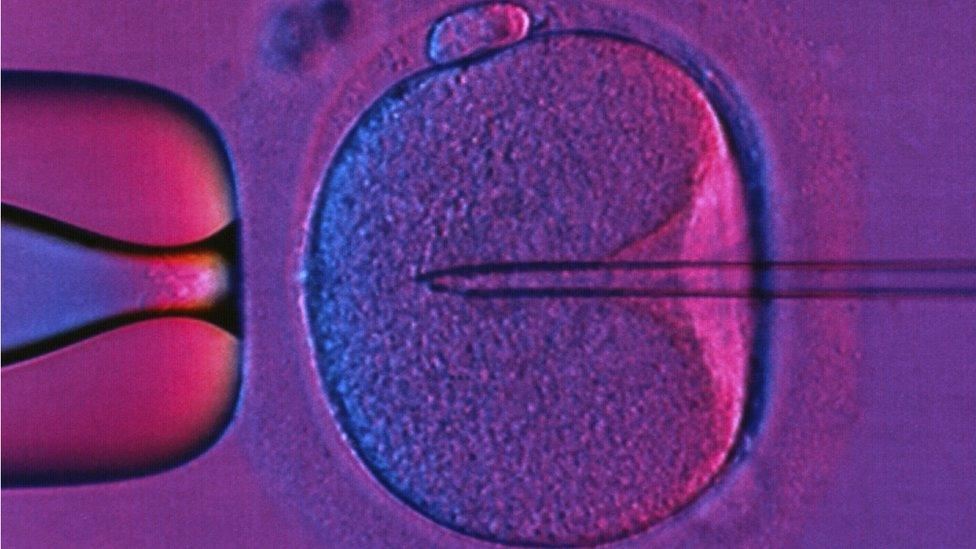
Nearly 90% of clinical commissioning groups (CCGs) fail to offer would-be-mothers the recommended three cycles of IVF treatment, new figures show.
Of the 208 CCGs in England, only 24 meet national guidelines and seven offer no treatment at all.
Couples trying to conceive through IVF have described the disparity as "crazy and unfair".
Campaign group Fertility Fairness has urged the government to intervene.
Its figures are based on Freedom of Information requests sent to CCGs across England, of which all 208 replied.
The National Institute for Health and Care Excellence (NICE), external issued guidelines in 2004 stating women under 40 who have failed to get pregnant after two years of trying should be offered three full cycles of IVF on the NHS.
However, the recommendations are not binding and it is up to local NHS providers to decide what to offer.
Fertility Fairness has found the number of CCGs meeting the guidelines has gone down. Between 2013 and 2017 the number dropped from 24% to 12% of CCGs.
It also found that 50 offered two cycles, 127 offered one and seven did not offer IVF treatment on the NHS.
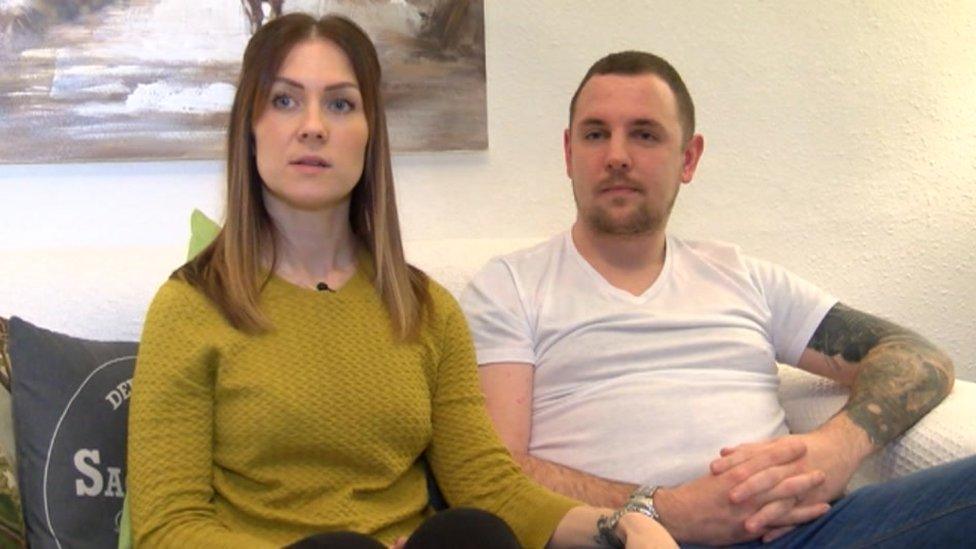
Sarah and Nathan Long have undergone one round of IVF treatment
Sarah Long and her husband Nathan have been trying for a baby for about seven years. They had one unsuccessful round of IVF in 2015 and local health commissioners say they are not entitled to any further attempts.
Mr Long said: "There's no difference between us and the person 20 miles down the road other than the fact they bought a house down there and we didn't. That's what hurts."
Louise Purvis and her husband, who live 18 miles away in Stalybridge, fell under the Tameside and Glossop CCG and, as a result, were entitled to three rounds.
Their first attempt in April 2015 resulted in a miscarriage, but after a second bout in November 2015 Mrs Purvis gave birth to a baby girl, Felicity, in 2016.
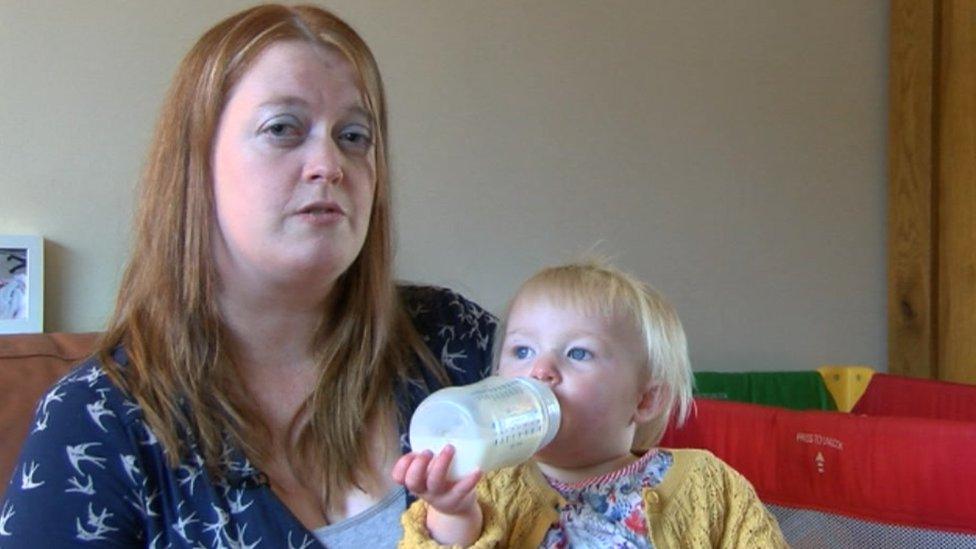
Louise Purvis gave birth to her daughter Felicity after undergoing two rounds of treatment
"I wish I could give my third go to somebody else," she said.
"We're very lucky where we live. I just can't imagine what life would be like if we'd only had one go and we didn't have Felicity."
'Crazy and unfair'
Tameside and Glossop CCG is one of four, dubbed "Golden CCGs", which follow NICE fertility guidance in full and do not restrict access to couples who have children from previous relationships.

In Vitro Fertilisation (IVF)
An egg is removed from the woman's ovaries and fertilised with sperm in a laboratory
The fertilised egg is then returned to the woman's womb to develop
IVF worked for the first time on 10 November 1977. On 25 July 1978, the world's first IVF baby, Louise Brown, was born
On average, IVF fails 70% of the time
The highest success rates are for women under 35
On average, it takes almost four and a half years to conceive with IVF
Source: Human Fertilisation and Embryology Authority/Fertility Network UK


Seven CCGs, including North East Essex CCG, offer no IVF treatment on the NHS.
Emma Edey and her husband, who have been trying to conceive for four years, recently moved from Ipswich to Colchester.
"Where we live now we don't get any cycles on the NHS, yet in Ipswich I would have, and my friends have. It's just crazy and so unfair.
"I would have never moved if I'd known."
A spokeswoman for North East Essex CCG said it restricted IVF service provision "as it did not provide sufficient benefit to the overall health economy".
She added treatment was available to some patients, including those whose fertility had been affected by surgical or cancer treatment.
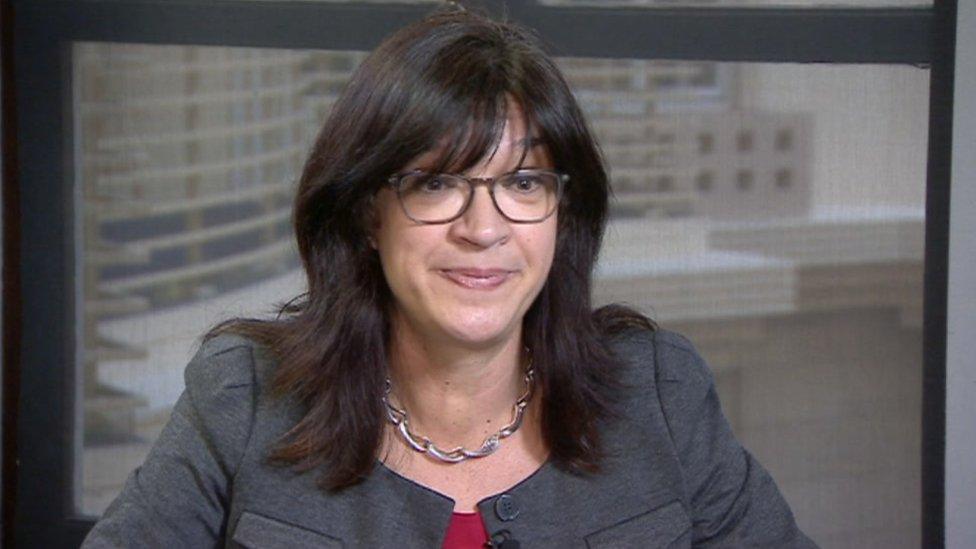
Fertility Fairness co-chair Sarah Norcross has urged the government to take action
In Scotland, a new policy was introduced in April enabling couples to have three full cycles.
In Wales, they are entitled to two full cycles, and in Northern Ireland they are offered one partial cycle.
Sarah Norcross, from Fertility Fairness which is funded by Merck Serono and Ferring Pharmaceuticals, said it was time for the government to "grasp this nettle and to actually take action".
"We've heard lots of comforting words from them over the years; that they're going to do something, that this is a disgrace and supportive statements, but talk is cheap and now they have to do something," she said.
A Department of Health spokesperson said CCGs have been advised to meet the NICE guidelines, adding: "The NHS should provide access to fertility services, including IVF, for all patients that meet the criteria."
NHS England said: "Ultimately these are legally decisions for CCGs, who are under an obligation to balance the various competing demands on the NHS locally while living within the budget parliament has allocated."
- Published25 October 2017
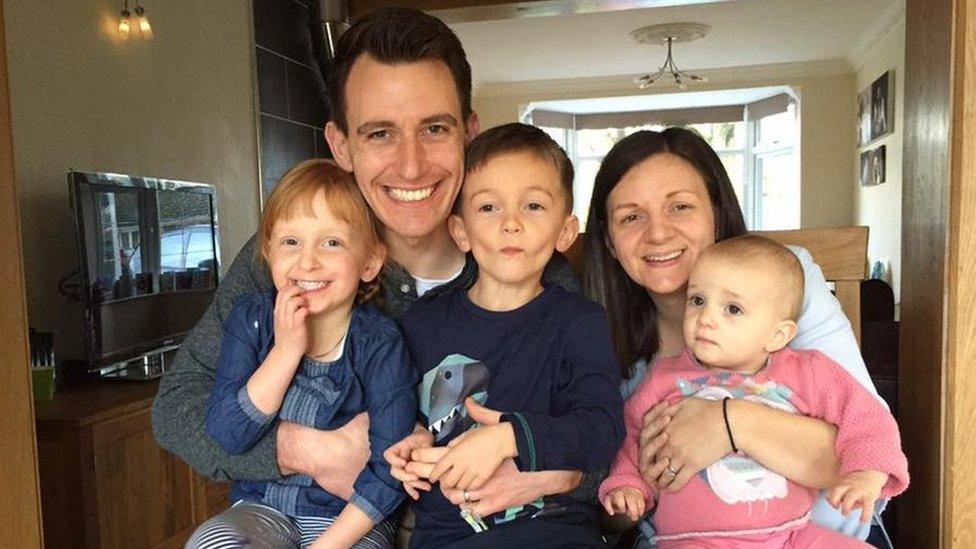
- Published23 October 2017
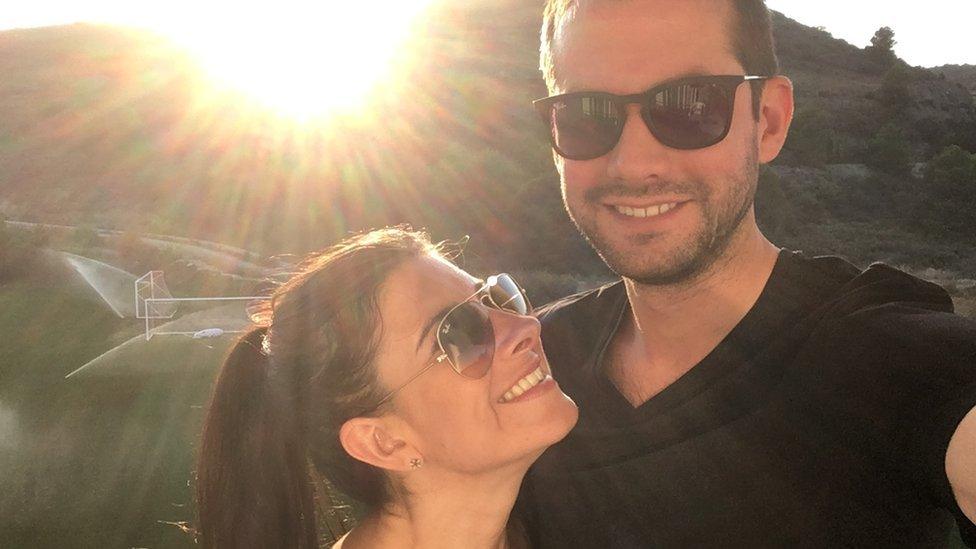
- Published20 September 2017
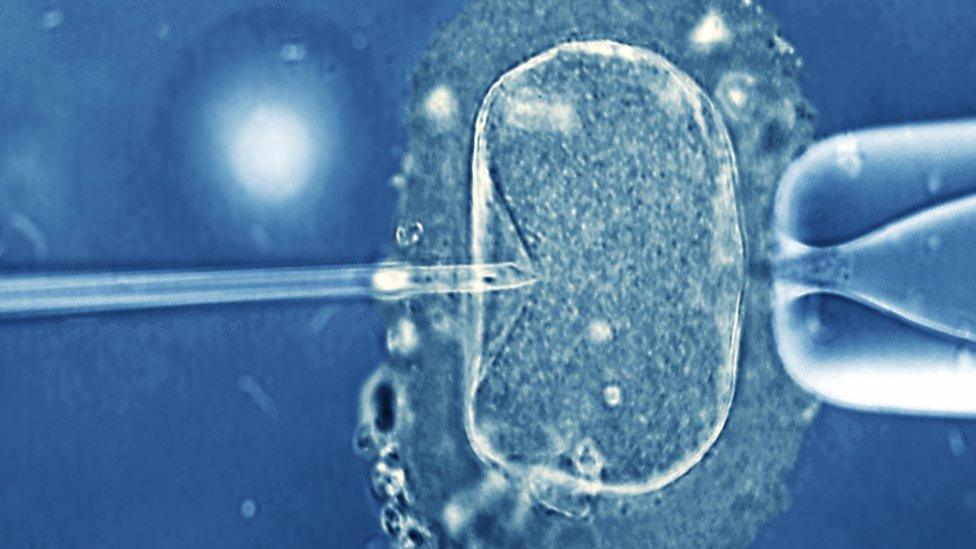
- Published7 August 2017
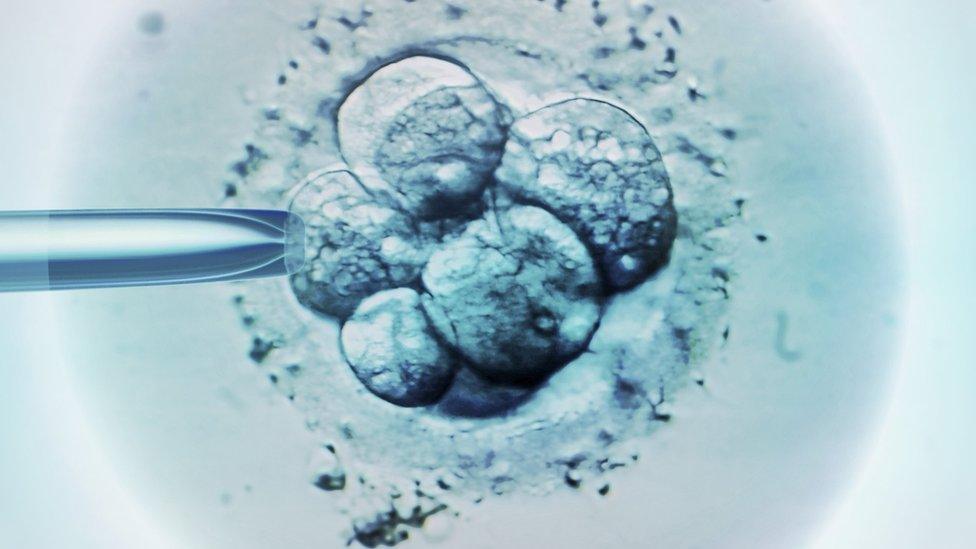
- Published24 July 2017
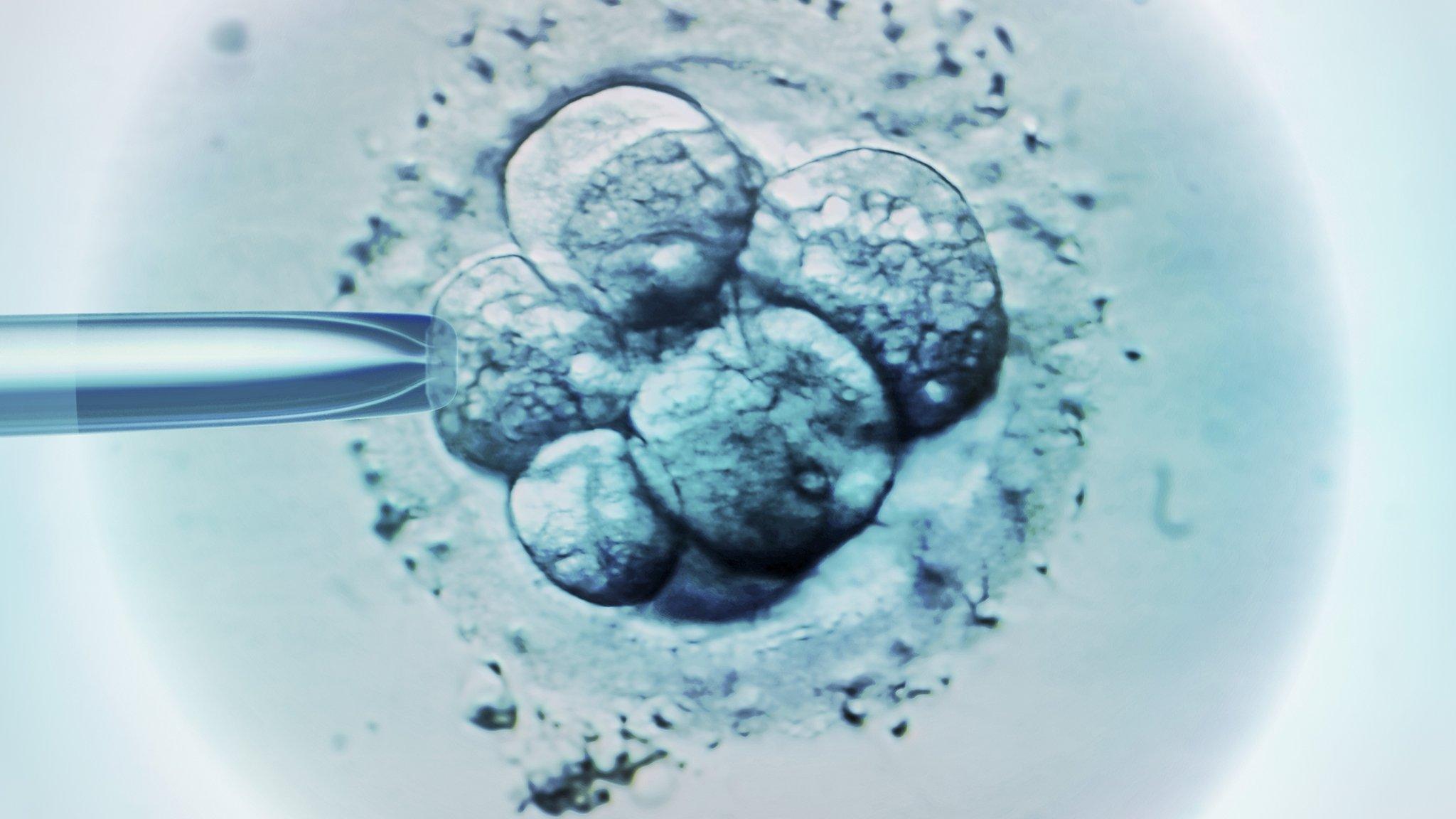
- Published4 October 2010